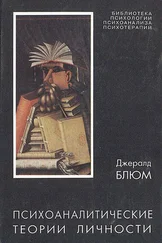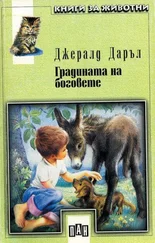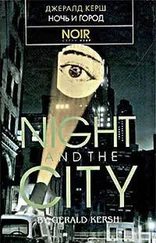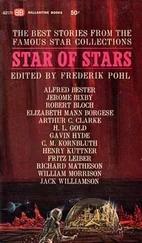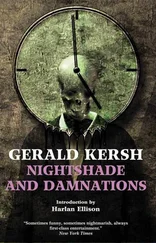“Then you don’t mind?”
“Go ahead by all means, Lieutenant,” said Mr. Aldous.
Neetsfoot went ahead—in other words, he sacrificed two weeks of his vacation in a dead silence, listening by Dicky’s bed while the child slept. Mrs. Aldous was in the grip of a nervous breakdown, so that her husband was present only half the time. But he bears witness—and so, at a later date, does an official stenographer—to what Dicky Aldous said, in what was eventually termed his “delirium.”
First, the child struggled left and right. It appeared to the detective that he was somehow trying to writhe away from something; that he was in the clutch of a nightmare. His temperature went up to 103 degrees, and then he said, “Look. This is the setup, you kids. The Pan keeps the engine running. Get that right from the start, Pan. Little Joe sticks a toothpick under the bell-push. I put the heat on. Okay? Okay!”
Lieutenant Neetsfoot knew what to make of this. The man who was called The Pan on account of his rigid face was driver for several gangsters; Little Joe Ricardo was a sort of assistant gunman who was trying to make the grade with the big mobs. The heat, as Neetsfoot construed it, was put on a union leader named M’Turk, for whose murder Rurik Duncan was tried but acquitted for lack of evidence.
M’Turk was shot down in his own doorway; the street was aroused less by the noise of the shot than by the constant ringing of M’Turk’s doorbell, under which somebody had stuck a toothpick.
But all this had happened at least eight years before Dicky Aldous was born.
“. . . And this I don’t quite get,” said Lieutenant Neetsfoot.
“There is something distinctly peculiar here,” Mr. Aldous said. “But I won’t have the child bothered.”
“I’m not bothering the child, Mr. Aldous, the child’s bothering me. Heaven’s my judge, I haven’t opened my mouth. Not even to smoke! The kid does all the talking, and Gregory takes it down on the machine. You can believe me when I tell you, there’s something funny here. Your little boy has gone into details about the M’Turk shooting; and this I can’t understand. Tell me, Mr. Aldous, do you remember the details of M’Turk?”
“No, I can’t say I do, Lieutenant.”
“Then how does the kid?”
“I must have told your people a thousand times: my son couldn’t possibly have heard anything about the people or the events you keep harping on.”
“I know he couldn’t, Mr. Aldous. This is off the record and on my own time. That’s understood, isn’t it?”
“It is a most extraordinary situation, Lieutenant.”
“You can say that again.”
Mr. Aldous said, with a kind of detached enthusiasm that somehow disgusted the detective, “You know what? The eye of this man Rurik Duncan having been grafted, complete with optic nerve, it’s almost as if the child’s actually seeing through Rurik Duncan’s optic nerve!”
“Almost as if,” said the lieutenant.
“But how ?”
“Ask the doctor, don’t ask me.”
And Dr. Holliday was, indeed, the fourth witness to the last, and most important, utterances of the boy into whose orbit he had grafted the right eye of Rurik Duncan. It happened, as previously, between two and three o’clock in the morning.
Dicky said, “Now listen. You, Dom, listen. And you listen, Mac. . . . You heard it before? Then hear it again. This is the way I want it, and this is the way it’s going to be. Dom, you always were trigger-happy. First, no loads in the rods. I want these guns ice-cold. One thing I won’t do, and that’s hang. And in Montana they hang you on a rope. Never forget that. . . . Second, follow my timing, and you can’t go wrong. We beat the lights. Remember, it’s two million and a half in small bills. Better men than you have died for less. My uncle Gabe died through getting bitten in the leg by a hog. This way’s more fun. . . . Third, the short haul in the armored truck, and the swift stash in the Rocks, you know where. Got it? Fourth, the quick scatter. Now somebody could get hurt. So let’s get this right. Okay? I’ll go over it again—”
At this point, Mr. Aldous, carried away by sheer excitement, cried, “Yes, but exactly where is the money? Where did we put it?”
Dicky sneered in his sleep, “And exactly where d’you get that ‘ did ’? It ain’t put there yet. . . . And who’s ‘ we’ ? Little Dom and Mac I told already. There ain’t no more ‘we.’ Go burn me, mister, and sniff for it. . . . We , crysakes! Well, I guess you got to be dumb, or you wouldn’t be a cop. Okay. You want to know where the dough is? I’ll tell you. It’s in Montana. Got that wrote down? Montana. It’s going to be loaded in a great big armored track in Butte. And then where?—” The child laughed in a singularly ugly way. “It’ll be my pleasure to tell you, mister: somewhere in Montana. All you got to do when I stash this dough is, scratch. Okay, Mr. Dickins?”
“Wasn’t Dickins the name of the district attorney who offered Rurik Duncan his life if he would divulge the whereabouts of the stolen money?” whispered Mr. Aldous.
Lieutenant Neetsfoot replied, not without bitterness, “Yes, it was. For God’s sake, shut up—I think you’ve already talked us out of that two and a half million. And here I’ ve sat like a stone for fifteen days, and right at the end you must bust in and open your damn yap.”
Deeply hurt, Mr. Aldous said, “My son has always responded to my voice.”
The lieutenant looked at him with disdain, and then said, in a carefully controlled voice, “Yes, Mr. Aldous. Your son has always responded to your voice, Mr. Aldous. But damn it, that wasn’t your son who was talking—that was Rurik Duncan! That was Rurik Duncan running over orders with Little Dominic and MacGinnis before the truck was snatched and the money stashed away! I told you to keep quiet like me, I begged you to keep your mouth shut like I did. But no, your son has always responded to your voice. Congratulations, Mr. Aldous; you’ve got the costliest voice in the world—it’s just talked us out of ten per cent of two million six hundred thousand dollars!”
They sat by the crib until dawn but, his fever past, Dicky Aldous, perspiring freely, talked no more in his sleep.
When he awoke, his father, who had an unshakable faith in the power of his voice to arouse response in his hitherto blind son, said, “Now, Dicky-darling, tell Daddy-dear about Montana.”
“Want to see blue,” said Dicky; and became engrossed in the color and the shape of a large red non-poisonous nylon teddy bear of which he had previously known only the texture.
And from that day to this he has not talked of Montana. His memory of events preceding Dr. Holliday’s operation is rapidly fading. Dr. Holliday, who visits the house from time to time, has put forward a half-hearted theory that, by some unexplained process, the regenerated nervous tissue, heavily charged with electricity, retained and conveyed the visual memory of Rurik Duncan only while this tissue was knitting. It may come back, he says, in adult life; or, on the other hand, it may not.
Lieutenant Neetsfoot, whom Mr. Aldous regards as a “character” pays a visit every other Sunday. He likes to play with the little boy. It was he who said to me, “This is unofficial, off the record; but I’m pretty observant. When I was a rookie I learned to watch you without seeming to. And I can tell you, there’s something very, very funny about that kid’s eye when he thinks he isn’t being observed. He’s seven now. I’m due to retire nine years from now. Call me crazy, but believe me—when that kid is old enough to have a car of his own and take a vacation without anybody else along, wherever he goes I’ll follow him.”
Читать дальше


